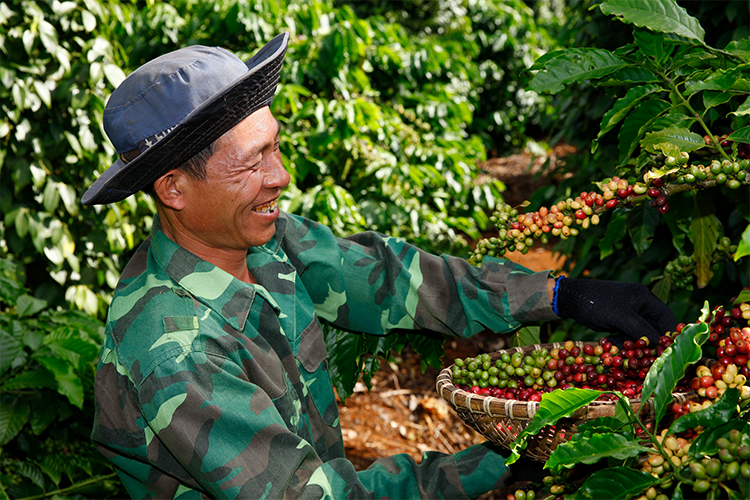Vietnam turns semiconductor vision into action
The global semiconductor industry is being reshaped by geopolitical tensions, shifting supply chains, and the surge of digital technologies.




The adoption of environmental, social and governance (ESG) criteria in private enterprises is a driver of innovation and new opportunities, creating long-term value for business and society.
According to Patrick Haverman, deputy resident representative of UNDP in Vietnam, promoting ESG adoption throughout the investment value chain can encourage greater private investment in sustainable development, resulting in greater impact.
He added that lot of actors in the investment value chain, including investors, banks and companies, have been increasing including ESG and sustainability information in their reporting processes. It would be important to create an enabling environment for sustainability and integrated reporting to flourish.
These statement were made at ESG – a key for sustainable development conference.
“There is no reason to see real alignment with the SDGs as anything else than good business,” said he, citing the Business Commission on Sustainable Development (BCSD).
ESG criteria covers a wide range of issues, including climate change and resource efficiency, human rights, labour relations, cybersecurity and privacy, anti-bribery and corruption, and transparency and disclosure. Standards can derive from international law, local law, or soft law standards – for example agreements, principles and declarations that are not legally binding.
At the conference, Nguyen Chi Hieu, director of ESG consulting of KPMG in Vietnam and Cambodia, informed that as the world is facing complex climate, social, and geopolitical issues, addressing ESG priorities is more important than ever.
Based on their own conditions, enterprises should begin applying related criteria as soon as possible, because external and internal risks are getting bigger and bigger.
Over the past years, many companies in Vietnam have been developing ESG as a big priority in their activities, and this have helped them improve their competitiveness and ensure sustainable development, said he.
For example, for TH Group, a big Vietnamese fresh milk producer, sustainability serves as the guiding light for its operations and businesses towards everlasting prosperity and global recognition. This is acknowledged with six sustainability pillars, including nutrition and health, environment, people, education, community, and animal welfare.
Last year, TH actively fulfill its social responsibility, and accompanied the government and competent authorities in providing support to Covid-19 fontline workers by contributions and donations.
It also kept playing the role of a co-founder in environmental initiatives such as Packaging Recycling Organization Vietnam (PRO Vietnam) and the Vietnam Business for Environment (VB4E).
Other founding members of PRO Vietnam, Nestlé Vietnam also considers sustainable development to play an important role in its long-term investment process in Vietnam.

As part of its commitment to environmental protection, Nestlé Vietnam undertakes action programmes to avoid detrimental impact on the environment. It also contributes to the preservation, restoration, and regeneration of natural resources for the present and future generations.
While the Covid-19 affected the supply chain heavily, the company still ensured its input by establishing a circular supply chain in Vietnam many years ago. It has connected with Vietnamese coffee farmers, supported them to achieved the highest output with highest quality, and then, purchased for production.
Beginning its business operations in Vietnam from 1992, SCG, other member of PRO Vietnam, is one of the leaders in sustainability. Its green products such as Super Cement, Song Gianh, and Starcemt not only save energy and resources but also help to reduce emissions.
It also introduced the eco-plastic SCGC Green Polymer, which is designed according to the principle of the circular economy to improve eco-efficiency. After using them, the materials of SCGC Green Polymer eco-plastic will be recovered and recycled for new value, thereby creating a new plastic lifecycle to meet the goal of going green.
Manufacturing group Hoa Phat, meanwhile, is using the huge amount of excess heat from the steel-making process to produce electricity, which covers up to 80 per cent of the electricity needed for its production.
While many top companies in Vietnam have built their activities toward ESG criteria, other are hesitant to apply and change business models and methods cause of some reasons.
The Vietnam ESG Readiness Report 2022 published by PwC showed that 57 per cent of foreign-invested enterprises gave explicit ESG commitments, while 58 per cent of listed companies in Vietnam indicated a “wait and see” approach. The main reason is that these are mainly SMEs that lack ESG knowledge and have limited financial capacity.
According to the results, 2/3 of respondents admitted difficulties due to absence of transparent regulations, while 61 per cent cited difficulty in embedding ESG in existing enterprise framework.
PwC Vietnam suggested that clear guidelines, a holistic country roadmap, and a level playing field for industries are needed for businesses to advance their ESG strategies.
While the government has made progress, more can be done. For instance, many are waiting for Vietnam’s policymakers to offer clarity around the country’s green finance rules and target areas, PwC said.
The global semiconductor industry is being reshaped by geopolitical tensions, shifting supply chains, and the surge of digital technologies.
The change in APA approval authority is expected to shorten processing time and enhance business proactiveness in international tax negotiations.
As hybrid cloud systems grow more complex, Vietnamese enterprises are struggling to detect cybersecurity threats moving laterally within their own networks.
The submission of the draft resolution on Vietnam’s international financial center to the National Assembly heralds a new developmental era for the country.
More than just running a 5-star resort, Kristian Petersen is redefining the art of hospitality with a humane and sustainable leadership philosophy.
For Tyna Huynh, co-founder of Drinkizz, organic is not just a food choice but a way of life that fosters a deep connection between people, nature and community.